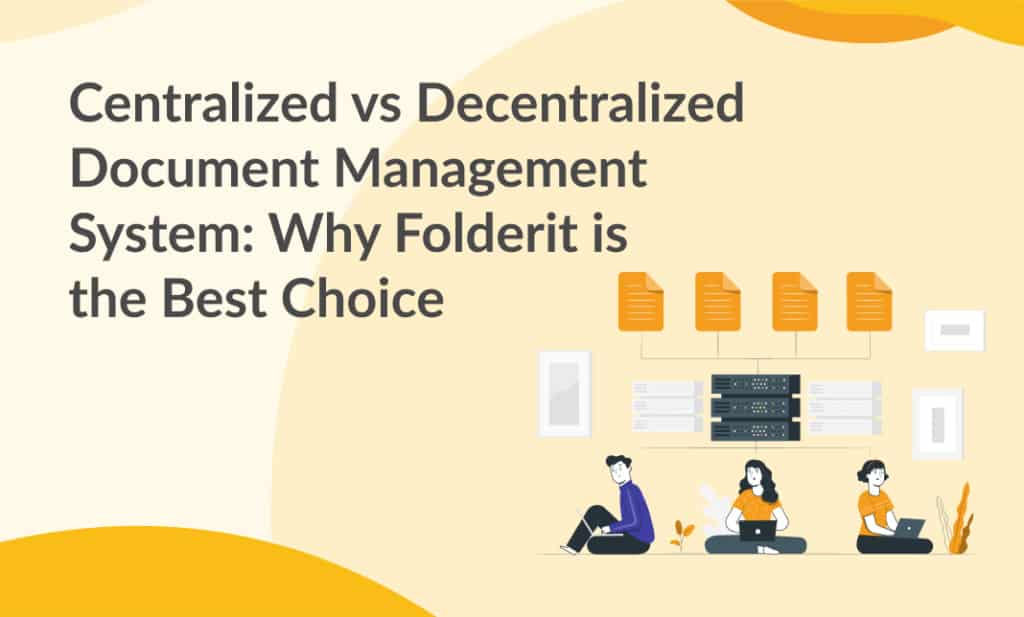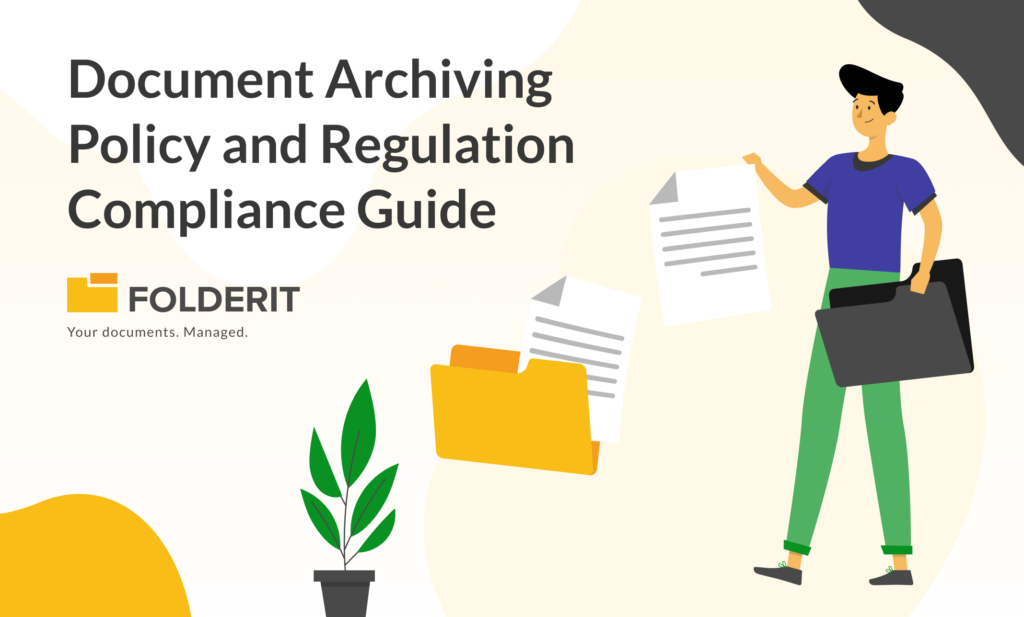Effective document management is indispensable to the success of any organization. Typically, when selecting a document management system (DMS), organizations must decide between centralized and decentralized systems.
But what are they and which is better?
Centralized Document Management System
A centralized document management system keeps all documents in a single, unified repository. This technique simplifies document categorization and makes it easier for users to access and manage documents from a centralized place or database.
Advantages of Centralized Document Management
- Simplified Access: A centralized system allows users to access all documents from a single location, making it easier to find and retrieve information quickly.
- Better Collaboration: Centralized document management promotes better collaboration by providing a unified platform for teams to work on documents together in real time.
- Enhanced Security: By consolidating all documents in a single location, centralized systems can better protect sensitive information through encryption, access controls, and audit trails.
Disadvantages of Centralized Document Management
- Limited Customization: Centralized systems often offer limited customization options, which may not be ideal for organizations with unique requirements or workflows.
- Potential Performance Issues: Storing all documents in a single location can sometimes lead to performance issues, especially when dealing with large volumes of data.
Decentralized Document Management System
Documents are distributed across many repositories in a decentralized document management system, which is commonly among separate departments or locations. This method allows for greater flexibility in document management, but it may necessitate more collaboration among team members.
Advantages of Decentralized Document Management
- Increased Adaptability: Decentralized solutions allow for greater flexibility in document organization, allowing enterprises to adjust their document management procedures to their individual requirements.
- Enhanced Customization: Organizations can use decentralized systems to design distinct workflows and processes for multiple departments or locations, ensuring that their document management processes correspond with their business objectives.
Disadvantages of Decentralized Document Management
- Difficult Collaboration: Decentralized systems can make collaboration more difficult because documents are scattered across various sites, making it difficult for team members to collaborate on a single document.
- Increased Security Risks: Distributing documents across numerous repositories can increase the risk of data breaches or unauthorized access because firms must secure each repository separately.
Which is the Better Choice for Organizations?
Centralized document management is often a better choice for organizations because it simplifies access, streamlines collaboration, and enhances security. By storing all documents in a single repository, users can quickly locate and retrieve information. Centralized systems also enable real-time collaboration on documents, fostering teamwork and productivity. Additionally, consolidating documents in one location allows for better security measures, such as encryption and access controls, to protect sensitive information and maintain compliance with data protection regulations.
Why Folderit is the Best Choice as a Centralized Document Management Solution
Folderit offers a multifaceted centralized document management solution that overcomes the limitations commonly associated with other centralized systems. By choosing Folderit, you can reap the benefits of a centralized approach without sacrificing customization options or experiencing performance issues.
Here’s why Folderit stands out as the best centralized DMS:
- Scalability: Folderit is designed to manage large data volumes without compromising efficacy, ensuring that your organization can expand without document management difficulties.
- Customization: Folderit, unlike other centralized systems, offers a variety of customization options, enabling you to construct workflows and processes that align with your business goals.
- Cloud-Based Solution: As a cloud-based DMS Folderit eliminates the need for physical storage and enables seamless access to documents from any device, anywhere. This adaptability ensures that your team can collaborate and work proficiently regardless of location.
- Advanced Security Features: With features like SSL encryption, role-based access controls, and audit traces, Folderit prioritizes the security of your documents. These measures help you maintain compliance with data protection regulations and protect sensitive information.
- Seamless Integration: Folderit’s centralized DMS can readily integrate with other business applications and platforms, allowing you to streamline your workflows and increase overall productivity.
- Exceptional Customer Support: Folderit’s dedicated customer support team ensures that you receive prompt assistance whenever you need help, making your document management experience as smooth as possible.
Conclusion
When comparing centralized and decentralized document management systems, it’s essential to consider the unique requirements and goals of your organization. Centralized systems offer simplified access, better collaboration, and enhanced security, while decentralized systems provide greater flexibility and customization options. However, with Folderit’s advanced features and customization capabilities, you can enjoy the best of both worlds in a centralized DMS that adapts to your organization’s needs.
Invest in a document management system that can support your organization’s growth and streamline your processes for improved efficiency. Explore Folderit’s flexible and comprehensive solutions to transform your document management experience today.



